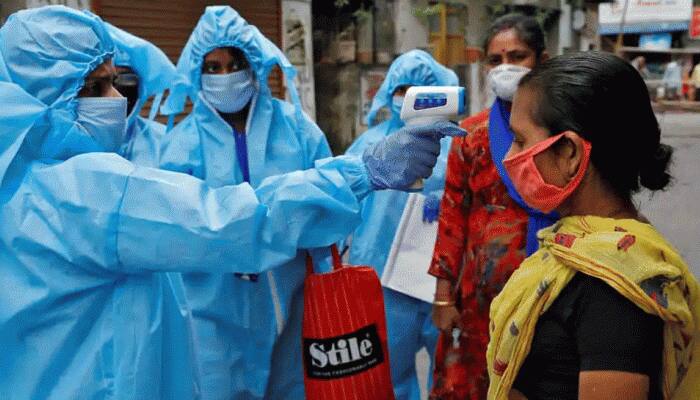Although the introduction of a nationwide lockdown has largely prevented the virus from spreading en masse, experts argue that India is likely to experience a second wave of infection during the monsoon season. If such a scenario occurs, the second phase of the lockdown is likely to begin, further impairing India's ability to further deplete its food, water, and other vital commodity reserves. The total loss to India's GDP from a 40-day blockade has been calculated to be $320 billion, according to the World Health Organization (WHO).

The spread of COVID 19 continues to have a significant impact on the outsourcing industry, which provides back-office operations to many of the world's largest companies. The ecosystem of tech start-ups in the country is immune to the chaos caused by COVID 19.
The Indian government has ordered a pan-India lockdown from 3 May 2020 to 15 April 2020, which has been extended until 3 May 2020. During this period, no companies with more than 1,000 employees and a total of 1.5 million employees may operate in India.
In this regard, in the wake of the recent Ebola outbreak in West Africa and the Middle East, the Indian government has begun to take a clear stand against pandemic attacks.
On 22 March, the whole country was in a lockdown period, which has now been extended until 3 May 2020. A great response was observed throughout the country, and the masses stood behind the government during the blockade.
While nearly 95% of citizens cooperated, the rest posed a threat to efforts and measures to contain the pandemic and is responsible for the collapse of the entire system. With pandemics still looming, estimates of the downward trend in global growth are constantly revising.
If India is not immune to a global recession, GDP could fall further, and if it does not, it could cause the entire economy to collapse. Indeed, some believe that India may be more vulnerable if its economy is ailing as a result of the so-called COVID-19 outbreak.

The Indian Prime Minister has already mentioned the establishment of an economic task force to develop policies to address the economic challenges arising from COVID-19. The country's top economic adviser said India was working on a range of measures to combat the economic impact of the rapidly spreading coronavirus, including money transfers to informal sector workers.
The virus, known as COVID-19, which causes respiratory disease, has infected more than 207,800 people worldwide and killed 8,600, according to the World Health Organization. India has reported 13 cases of coronavirus, 14 of which have recovered and three have died, "the health ministry said.
Countries such as Italy, where the infection is spreading rapidly, are struggling with the spread and, according to the WHO, medical facilities have reached their limits.
But he said India's weak response to COVID 19 will hamper overall growth. India, which has overtaken Britain and France to become the world's fifth-largest economy, is expected to grow by 1.9% this year, surpassing China's estimated 1.2%. Indeed, the IMF expects China to overtake India over the next three years, rising by 9.2% to 7.4% relative to India.
Since then, more than 31,000 cases of coronavirus have been confirmed and the World Health Organisation has recognized it as a pandemic. India, which has reported the highest number of confirmed cases of COVID-19 in the world, is one of many countries where tests are carried out to determine the presence of novel coronaviruses. Since then, it has spread worldwide and has been detected in at least 20 countries, most of them in Africa, Asia, and Europe.
The economic impact of COVID-19 in India will depend on how the virus spreads and how abrupt shifts in supply and demand exacerbate economic damage. Given that a pandemic of this severity is undetectable in a country such as India, which has the highest population rate and density in the world, the government at Union and state level must take all necessary measures on a war basis to prevent the spread of the pandemic. On March 12, India declared a self-imposed quarantine and was completely closed until midnight on March 24.
The country is now quarantined for a total of 1.5 million people, or about a third of the country's population.

Although economic indicators have improved in recent months, the outbreak is expected to weigh on the quarter in March. Even before that, the quarterly expansion rate was below previous levels, making India one of the fastest-growing major economies in the world. Subramanian argues that the growth rate could take a hit, though the magnitude is hard to predict. He also said this year was also the first full quarter of a two-year recession since the 2008-09 recession.
Economists warn that when India faces, say, an out-of-control epidemic like the one in Italy, the impact is likely to be more severe.









0 Comments
Please do not enter any spam link into the comment box.